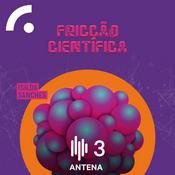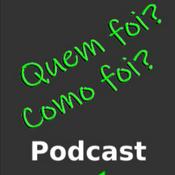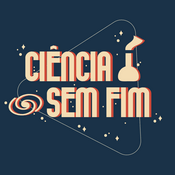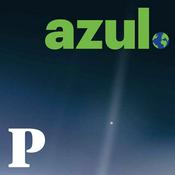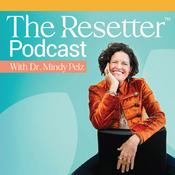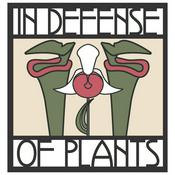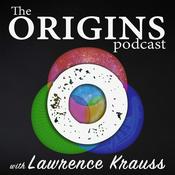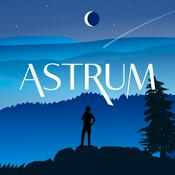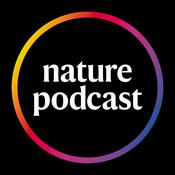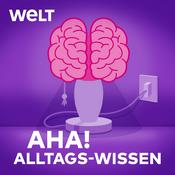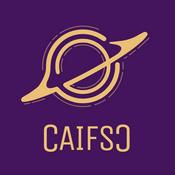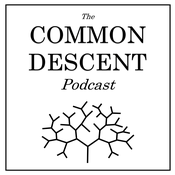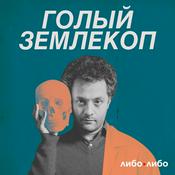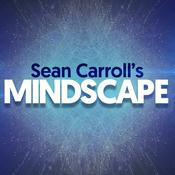116 episódios

108. 2025 Reviewed (Off the Record)
31/12/2025 | 34min
Enjoy our last episode of 2025! In Neuroverse fashion, the last episode of the year is "Off the Record". In this episode we chat and reminisce about our favourite episodes from the past year, what inspired us, what episodes left a lasting impression and our plans for 2026.---We hope you enjoy the episode! Please feel free to share with your friends and family, it means a lot to us🤍Neuroverse Websitehttps://neuroversepod.comPodcast directoryhttps://anchor.fm/neuroverse9 Support us! https://ko-fi.com/neuroverse Merchandise:https://neuroversepod.teemill.comTwitter: @neuroverse_podhttps://twitter.com/neuroverse_pod?s=21&t=KvAEuwGNKFQ9IPKlL7NTEg Instagram: @Neuroverse_pod https://instagram.com/neuroverse_pod?igshid=YmMyMTA2M2Y= Help us improve our podcast by giving us some feedback! https://forms.gle/PuEMC1BCWXdAqCRQA

107. Tools for Looking into the Brain: Calcium, Cortex, and Cortical Flexibility (with Dr. Matthew Harvey)
17/12/2025 | 40min
In today's episode, we are joined by Dr. Matthew Harvey, a medical doctor turned neuroscientist, currently a postdoctoral researcher at the Francis Crick Institute who studies cortical dynamics during behaviour. Matt tells us about his doctoral research on cortical flexibility in a neurodevelopmental disorder mouse model (a neurexin 1-alpha knockout), and how he applied wide-field calcium imaging to explore cortex-wide dynamics during learning and flexible decision-making. We also discuss the complex and shared genetic bases of neurodevelopmental disorders and the future of translational research that is bridging the gap between clinical and preclinical research on neurodevelopmental disorders.Matthew Harvey trained as a medical doctor before making the jump to academia and carrying out a PhD in neuroscience at King's College London, in the lab of Adil Khan, where he investigated cortex wide neural activity during learning and flexible decision making in mouse models of neurodevelopmental disorders. He is currently researching impulsivity & cognitive control in Flor Iacaruso's lab at the Francis Crick Institute.This episode is part of our Tools for Looking into the Brain series which is sponsored by Scientifica, leaders in electrophysiological equipment and expertise. This series is dedicated to creating engaging and informative content exploring various techniques used by researchers in neuroscience. Find out more here.---We hope you enjoy the episode! Please feel free to share with your friends and family, it means a lot to us🤍Neuroverse Websitehttps://neuroversepod.comPodcast directoryhttps://anchor.fm/neuroverse9 Support us! https://ko-fi.com/neuroverse Bluesky: @neuroversepod.bsky.socialhttps://bsky.app/profile/neuroversepod.bsky.socialInstagram: @Neuroverse_pod https://instagram.com/neuroverse_pod?igshid=YmMyMTA2M2Y= Help us improve our podcast by giving us some feedback! https://forms.gle/PuEMC1BCWXdAqCRQA

106. Tools for Looking into the Brain: How Zebrafish Illuminate Spinal Cord Function for Movement and Locomotion (with Prof. David McLean)
20/11/2025 | 51min
In today's episode Clara and Carolina are joined by Professor Dave McLean for another episode on Tools for Looking into the Brain. Dave is a Group Leader at the University of Edinburgh and researches the neural circuitry behind locomotion. He talks to us about the use of zebrafish as a model organism for understanding the neural circuits in charge of locomotion and movement, and how motor behaviours- both innate and learned- emerge as the nervous system matures. His lab combines advanced imaging, electrophysiology, and behavioural analysis to map the organization and recruitment of specific neuron types, providing fundamental insights into how vertebrate motor control is built and how it adapts with learning.---We hope you enjoy the episode! Please feel free to share with your friends and family, it means a lot to us🤍Neuroverse Websitehttps://neuroversepod.comPodcast directoryhttps://anchor.fm/neuroverse9 Support us! https://ko-fi.com/neuroverse Bluesky: @neuroversepod.bsky.socialhttps://bsky.app/profile/neuroversepod.bsky.socialInstagram: @Neuroverse_pod https://instagram.com/neuroverse_pod?igshid=YmMyMTA2M2Y= Help us improve our podcast by giving us some feedback! https://forms.gle/PuEMC1BCWXdAqCRQA

105. Tools for Looking into the Brain: Untangling the Neural Mechanisms of Chronic Pain (with Professor Sascha Alles)
23/10/2025 | 41min
What is pain—and why is it so hard to understand, treat, or even describe? In our latest Tools for Looking into the Brain episode, we sit down with Dr. Sascha Alles, Associate Professor in the Department of Anesthesia at Cincinnati Children's Hospital, to unpack the fascinating and often misunderstood world of chronic pain.Dr. Alles takes us deep into the science behind how pain works, the electrophysiological changes that contribute to pain, and what makes it such a uniquely challenging subject for researchers. We discuss how cutting-edge tools and model systems are reshaping our understanding of the nervous system.---We hope you enjoy the episode! Please feel free to share with your friends and family, it means a lot to us🤍Neuroverse Websitehttps://neuroversepod.comPodcast directoryhttps://anchor.fm/neuroverse9 Support us! https://ko-fi.com/neuroverse Bluesky: @neuroversepod.bsky.socialhttps://bsky.app/profile/neuroversepod.bsky.socialInstagram: @Neuroverse_pod https://instagram.com/neuroverse_pod?igshid=YmMyMTA2M2Y= Help us improve our podcast by giving us some feedback! https://forms.gle/PuEMC1BCWXdAqCRQA

104. The Importance of Ideas in Neuroscience (with Dr. Mateusz Kostecki)
25/9/2025 | 47min
In today's episode, we are joined by Dr Mateusz Kostecki to discuss the importance of ideas as a theoretical and conceptual basis for generating and motivating neuroscience research. Mateusz is currently a postdoctoral fellow at the University of Heidelberg studying patterns of behaviour in placozoa, blob-like marine invertebrates. Prior to this, Mateusz completed a PhD on the social transmission of behaviour in rodents at the Laboratory of Molecular Basis of Behavior at the Nencki Institute in Warsaw, Poland. During his PhD, he also founded Nencki Open Lab, a neuroscience grassroots initiative that organises workshops, symposia, talks, and other events, with the goal of offering a creative environment in which researchers can discuss their ideas with people from different scientific subfields and learn tools that allow them to develop their experimental setups and analyse their data. In the episode, we talk about Mateusz's research journey, the philosophy behind Nencki Open Lab, how to deal with variability and juggling both theory and experimental approaches as a (neuro)scientist, and how to stay motivated in science. ---We hope you enjoy the episode! Please feel free to share with your friends and family, it means a lot to us🤍Neuroverse Websitehttps://neuroversepod.comPodcast directoryhttps://anchor.fm/neuroverse9 Support us! https://ko-fi.com/neuroverse Bluesky: @neuroversepod.bsky.socialhttps://bsky.app/profile/neuroversepod.bsky.socialInstagram: @Neuroverse_pod https://instagram.com/neuroverse_pod?igshid=YmMyMTA2M2Y= Help us improve our podcast by giving us some feedback! https://forms.gle/PuEMC1BCWXdAqCRQA
Mais podcasts de Ciência
Podcasts em tendência em Ciência
Sobre Neuroverse
Ouve Neuroverse, More or Less e muitos outros podcasts de todo o mundo com a aplicação radio.pt
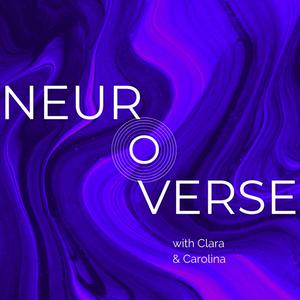
Obtenha a aplicação gratuita radio.pt
- Guardar rádios e podcasts favoritos
- Transmissão via Wi-Fi ou Bluetooth
- Carplay & Android Audo compatìvel
- E ainda mais funções
Obtenha a aplicação gratuita radio.pt
- Guardar rádios e podcasts favoritos
- Transmissão via Wi-Fi ou Bluetooth
- Carplay & Android Audo compatìvel
- E ainda mais funções


Neuroverse
descarregue a aplicação,
ouça.




